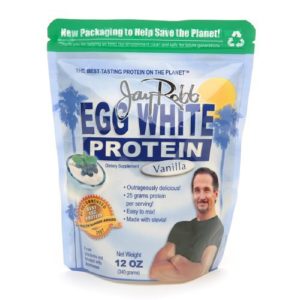Protein powders – uncovered!
As a personal trainer for the past 23 years I get asked frequently “what are the best protein powders?” and “How much protein should I take?” Let’s take a moment to uncover some of the details surrounding protein powders.
What does protein do in the body?
Protein is an essential macronutrient for the body. It is found in every cell and is an important building block of bones, muscles, cartilage, skin, and blood. It is also used to make enzymes, hormones, and other body chemicals.
How does protein help with fat loss?
Protein keeps us fuller longer than things like simple starchy carbohydrates. It takes some time to digest keeping you satiated and comfortable. When looking at protein, fat and carbohydrates, the protein keeps us fuller than the other macronutrients
Another reason that proteins aid in fat loss is that they have what is called a thermic effect. This means that it takes quite a few calories to simply digest protein. So by simply eating protein you’ll burn calories, stay full and keep your lean muscle mass that will fuel itsself with your fat stores. Now, keep in mind that solid forms of protein have a higher thermic effect than the liquid form of protein powders.
Why should you take protein powders?
Now, as always I recommend that you opt for whole real food whenever possible. These are the best sources of protein:
- Beef
- Chicken
- Fish
- Eggs
- Wild Game
However, there are times when it is difficult to get your hands on a piece of chicken protein powders can help keep your blood sugar from dropping and causing you to eat the wrong foods in compensation. The body needs a constant supply of protein throughout the day approximately every three hours. If you go too long without a good supply of protein the body will converting your hard earned muscle to a usable form of protein to do what it needs to do. So, protein powders are good for:
- Convenience
- Faster absorption for post-workout protein requirements
- Better absorption and digestion
- Constant flood of amino acids at all times
How much protein should you take in?
A general rule of thumb for protein intake it between .6 grams and 1 gram per pound of body weight depending on your activity level. A muscular person that lifts weights on a regular basis would lean toward 1 gram and a person that is fairly sedentary would intake closer to .6 grams per pound of body weight.
What Type of protein should I drink?
Protein powders come in many different forms. I will list them for you here, what each one’s features and benefits are and some of my favorite sources. I’ll give you a few basics to use when choosing protein
- Always look for the best ingredients you can and check for additives such as artificial flavors and sweeteners
- Look for 7-10 ingredients
- Stay away from hype. The best quality proteins are usually not found in the pages of the muscle head magazines but in the aisles of the health food store.
- Make sure your protein has:
- Low Fat (1-5 grams is ok)
- Low Carb (1-5 grams is ok)
- High Protein (normally about 20-30 grams per serving)
I have provided some of my favorite sources for you. These are all affiliate links which means that if you click the pic you’ll buy me a cup of coffee…Thanks!
One thing to consider is how you will be using the protein powder. Will you be using it as a pre-workout fuel or as a snack or meal replacement when you are running around or short on time?
Whey Protein:
Whey is the best protein to take in within 2 hours of your workout. it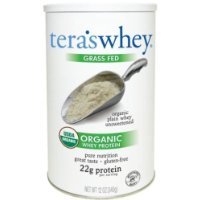 is an excellent option for building strength and repairing muscle tissue. Whey protein is of course made from dairy and can cause bloating and gas.
is an excellent option for building strength and repairing muscle tissue. Whey protein is of course made from dairy and can cause bloating and gas.
You will find two types of whey protein
- Hydrolyzed whey protein – broken down from whole proteins into smaller amino acid groups to speed digestion
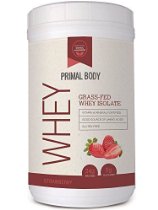
- Whey isolate protein – Rapidly absorbed and ideal for post workout as it is quickly shuttled to the muscles
- Concentrate – A good source that is absorbed at a moderate pace. This would be a good option for an afternoon snack
Casein:
Casein is a form of protein derived from dairy. It is less optimal after a workout as it digests slowly. For this same reason it makes a great protein to take in before bed as it will keep your blood sugars stable throughout the night.
Pea protein – Pea is a plant based protein that is also gluten free. it is affordable and has similar amounts of amino acids as whey and casein. Another benefit of pea protein is that is tends to be very 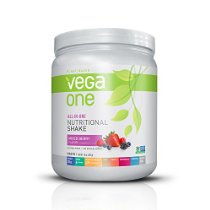 affordable.
affordable.
Vega One is made with Pea, hemp and flax protein
Hemp Protein – This plant based protein is high in omega 3s which is great for fighting inflammation and excellent for heart health. While hemp has many health benefits it is not idea for weight loss as it is high in fat and calories. It also tend to be more costly than other protein sources
Soy protein – Now, if you’ve followed me for very long you’ll know that I am not a fan of soy (read the article HERE) but, in order to be thorough I will include it. Soy, like pea, is a plant based protein. While it does compare to whey protein is does contain isoflavones which interact with estrogen in a negative way. It also lowers testosterone and thyroid hormone which are key for maintaining a healthy metabolism
Egg White Protein is an excellent option for those that are not vegan but cannot tolerate dairy. Jay Robbs Egg White Protein is derived from chickens not given growth hormones
Protein drink add ins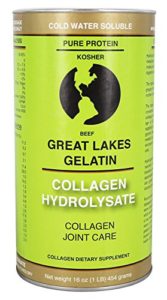
Collagen – Collagen is the most abundant protein in the human body and is the substance that holds the whole body together. It is found in the bones, muscles, skin and tendons, where it forms a scaffold to provide strength and structure
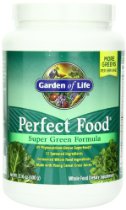 Greens – it is also a great idea to add greens to your protein drinks as they will naturally ramp up the nutrient value of your drink. When your cells are nourished with the vitamins and minerals they need you will find that you crave less. I have always been a fan of the Garden of Life products as they are concerned about quality!
Greens – it is also a great idea to add greens to your protein drinks as they will naturally ramp up the nutrient value of your drink. When your cells are nourished with the vitamins and minerals they need you will find that you crave less. I have always been a fan of the Garden of Life products as they are concerned about quality!
One more thing about protein…
When taking in high levels of protein it is important to stay hydrated. Increased protein can increase urine output. Without adequate hydration, this can be hard on the kidney especially for those that already have kidneys that are not functioning at optimal levels.

